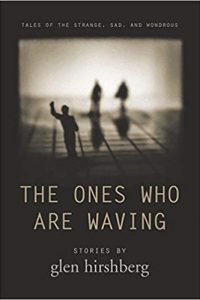Amy Goldschlager Reviews Witchmark Audiobook by C.L. Polk
 Witchmark, C.L. Polk; Samuel Roukin, narrator (Recorded Books 978-1-9800-0200-0, $20.95, digital download, 9 hr., unabridged) June 2018.
Witchmark, C.L. Polk; Samuel Roukin, narrator (Recorded Books 978-1-9800-0200-0, $20.95, digital download, 9 hr., unabridged) June 2018.
Dr. Miles Singer, a doctor and military veteran of the war between Aeland and Laneer, is desperately trying to find out why his fellow veterans are coming home and brutally slaughtering their loved ones. Then a new mystery – and a new danger – show up at his hospital: Nick Elliot, a witch and reporter dying of poison, begs Miles to find his murderer… and he uses Miles’ real name. Miles is actually Sir Christopher, a mage with healing powers who ran away to become a doctor rather than serve as a magical power source for his sister, whose weather-controlling powers are considered far more valuable to the nation than his own. Aided by the enigmatic and gorgeous Tristan Hunter, Miles searches for clues to the two mysteries while desperately trying to dodge the noble family who seeks to drag him back into the fold, and ultimately uncovering some ugly truths both about Aeland and Laneer.
Although the author is Canadian, the novel is narrated by an English actor, which is entirely appropriate for a novel set in a land that’s heavily based on Edwardian English society – except that there’s magic, women have more agency, and while same-sex relationships aren’t exactly embraced by society, they aren’t entirely rejected, either. Roukin’s got just the right Received Pronunciation for the noble, well-educated Miles. There are a few apparent stumbles, though. I always thought that when speaking of a valet as a manservant, the “t” was spoken. Instead, the narrator used the American pronunciation “va-LAY,” which I’ve always associated with someone parking cars. Also, the word “brazier” shouldn’t be pronounced like “brassiere.”
Genre-savvy listeners will want Miles to figure out that the soldiers’ ailment has a magical rather than a medical origin a lot sooner than he does; on the other hand, this genre-savvy listener was also sure there was a direct link between what Nick was investigating and the affected soldiers, and she was absolutely wrong, although the two cases ultimately dovetail in a frightening way. It’s always refreshing to have one’s expectations shaken up.
This time period is a fertile area for fantasy writers – there’s just something about magic and early motor cars – but this is a particularly sterling example of the type. I await further volumes in the series.
This review and more like it in the October 2018 issue of Locus.
 While you are here, please take a moment to support Locus with a one-time or recurring donation. We rely on reader donations to keep the magazine and site going, and would like to keep the site paywall free, but WE NEED YOUR FINANCIAL SUPPORT to continue quality coverage of the science fiction and fantasy field.
While you are here, please take a moment to support Locus with a one-time or recurring donation. We rely on reader donations to keep the magazine and site going, and would like to keep the site paywall free, but WE NEED YOUR FINANCIAL SUPPORT to continue quality coverage of the science fiction and fantasy field.






